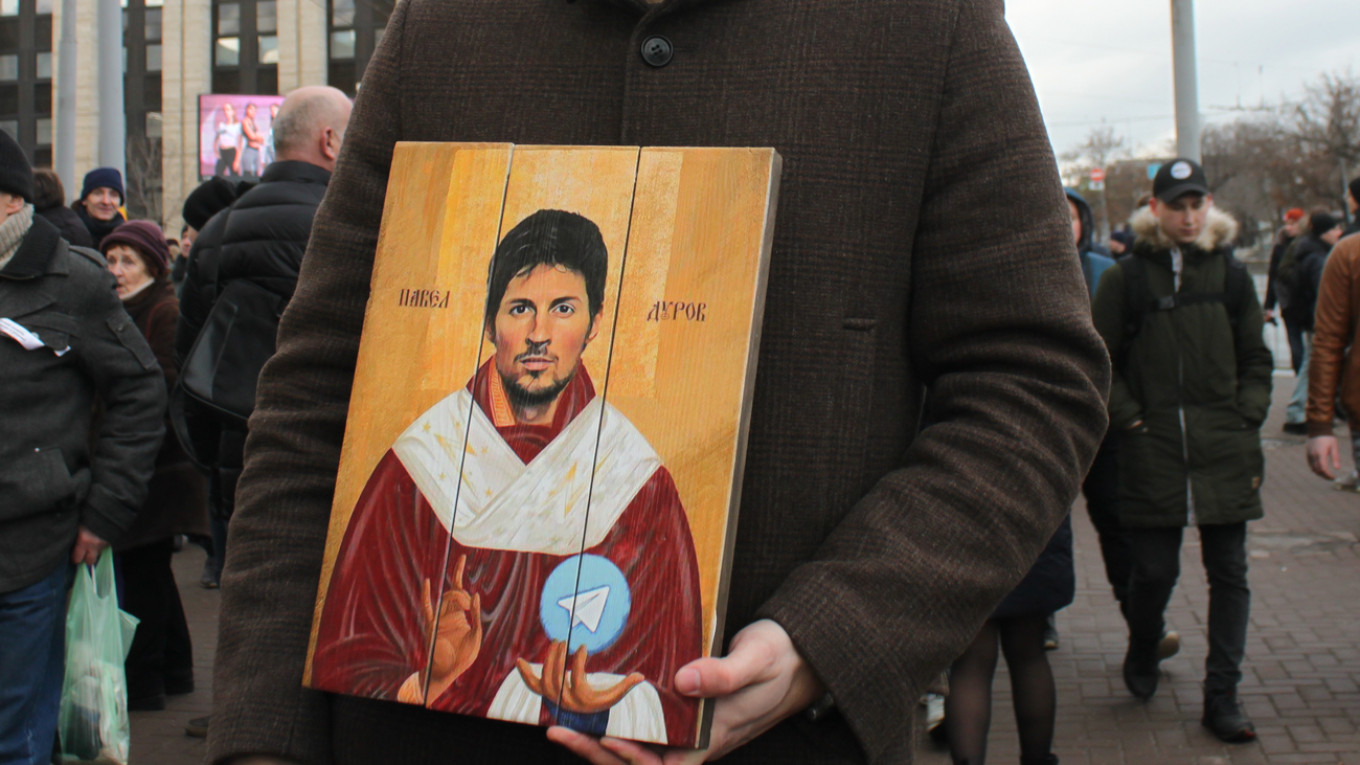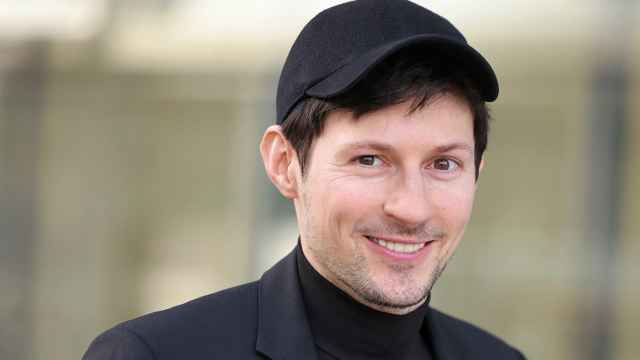The arrest of Pavel Durov in France could be a turning point for free speech in the digital space, threatening to permanently cripple our understanding of privacy and its limits. Judging by media reports, the charges being readied against the Telegram founder appear to be less about his actions and more about controlling a platform known for its privacy protections.
The essence of the charges is that Telegram is allegedly being used for crimes including drug trafficking and child pornography, as well as hacking attacks. However, the same accusations could just as easily be brought against the creators of the iPhone and Android, since virtually no offense can be committed without using their products in one form or another. In a similar vein, it would be a good idea to ban the manufacture of small plastic bags because they are often used to sell drugs. This reminds us of the old question: Is the maker of a knife to blame if someone is stabbed to death with it? The answer is obvious — no, they are not. It is the perpetrator who is responsible for the crime, not the one who created the tools or technology that can be used for both legal and illegal purposes.
Fighting crime is primarily the job of law enforcement and intelligence agencies, not private enterprises. Leaders of companies like Telegram may assist the authorities if they deem it necessary, but they are under no obligation to blindly act in the interests of states by sacrificing the privacy of their users. Ultimately, it is the job of law enforcement to develop crime-fighting techniques and collect evidence themselves, not to shift that responsibility to technology companies. If it's difficult for them to track and expose illegal activity without access to user data, that's not a problem for Telegram or other privacy-protecting companies, and it's certainly not a problem for the users themselves.
At the same time, the strong declarations about fighting crime sound even more absurd as long as there are truly impenetrable encrypted technologies and communications such as Tor, i2p, Freenet and PGP, which are constantly used to organize illegal activities and are virtually uncontrollable. These systems are inherently designed to maximize user anonymity and security, making them ideal for covert operations. In contrast, Telegram is more focused on media and political activity, where privacy is important, but the platform does not claim absolute invulnerability and is involved in the fight against illegal content.
All of this indicates that Durov's arrest reflects the authorities' desire to gain control over one of the most independent platforms rather than a real desire to fight crime.
The introduction of various regulations is often disguised as a fight against terrorism, drug trafficking or pedophilia. However, these well-intentioned goals hide the threat of arbitrary use of power: any dissent, criticism or denunciation of state abuses can be declared a crime, and any inconvenient citizen can be declared a terrorist. This is a painfully familiar practice that we have seen in Russia for decades.
The fundamental problem is that, time after time, under beautiful slogans, states try to crush and distort the very idea of privacy and data protection on the internet. Telegram and its creator have already faced similar attacks. In 2018, Russian authorities tried to block access to the platform in the country under an absolutely identical pretext — the fight against terrorism. However, Durov refused to hand over user data to the Russian security services, becoming a symbol of resistance to the state and the arbitrary use of the coercion machine. We are now seeing similar attempts from the French authorities, which shows the global nature of this pressure.
The insistence that platforms such as Telegram actively cooperate with the intelligence services undermines the basic principles of freedom of speech and guarantees of secrecy of correspondence. The inviolability of personal information must remain a fundamental principle, even if it complicates the work of law enforcement agencies — otherwise, we open Pandora's box and create a world in which no one is protected from the arbitrary power of the authorities; we embark on a dangerous path toward authoritarian control over citizens.
The consequences of Durov’s arrest could be long-lasting and tragic for digital freedom. If Durov is forced to cooperate with the authorities, it could undermine Telegram's credibility as an independent company. In turn, it will open the door to increased scrutiny of other digital platforms as well. States around the world will be able to use this precedent to justify their demands for access to users' personal information without court orders.
Freedom of speech and secrecy of correspondence are once again being held hostage to political games. And although these concepts are legally enshrined as fundamental rights, real practice shows that states increasingly ignore them when it comes to the possibility of extending control over the private lives of citizens.
Another aspect that deserves attention is the political reaction to Durov's arrest. The Kremlin, always ready to pursue any opportunity to criticize the West, immediately latched on to the story, using it as a convenient argument against Western democracy. The Russian authorities, who were themselves trying to block Telegram just a few years ago for the same reasons now voiced by French law enforcement agencies, suddenly became its “defenders.” This blatant hypocrisy underscores that Durov's case is being used by both the West and Russia to their own advantage.
However, it is important to understand that Kremlin officials would not have defended Durov with such zeal if he were in Russia. On the contrary, he would likely face the same fate as many other entrepreneurs and activists facing repression. After all, Durov fled Russia precisely because of pressure from the authorities, accompanied by the exact same accusations that are now being made by the French authorities, and the hooting of all the same characters who are now cartoonishly posing as freedom of speech activists.
This underscores that the Durov case is not just an issue of free speech and data privacy, but a political struggle for control over information and technology. If states can subjugate platforms like Telegram, it will be a blow to digital rights around the world. The very ability to express oneself and speak openly about one's beliefs will be jeopardized.
As practice shows, people who speak out loudly and publicly against government regulation of speech and interference with privacy sooner or later come face to face with the full force of the coercive apparatus. Assange, Snowden, Durov. These figures have become symbols of the struggle for free speech and the protection of personal information, but their lives have been full of hardship and repression. Any open resistance to the authorities' interference sooner or later leads to severe pressure. In this regard, it is worth asking the question: who is next? Perhaps Elon Musk, known for his ambitious projects and provocative statements, will be at the center of such a confrontation.
In a world where the boundaries between privacy and state control are increasingly blurred, the struggle to preserve freedom and privacy is becoming increasingly dangerous, and anyone who stands up to defend these values must be ready to face the Leviathan.
Ultimately, the arrest of Pavel Durov is not just a problem for one person or one company. It is a major challenge for everyone who supports freedom of speech and who is ready to fight for the remnants of privacy that still exist. Behind the guise of fighting crime, states have sought time and again to undermine these principles. If we do not pay attention, we risk losing the freedoms we consider inalienable.
A Message from The Moscow Times:
Dear readers,
We are facing unprecedented challenges. Russia's Prosecutor General's Office has designated The Moscow Times as an "undesirable" organization, criminalizing our work and putting our staff at risk of prosecution. This follows our earlier unjust labeling as a "foreign agent."
These actions are direct attempts to silence independent journalism in Russia. The authorities claim our work "discredits the decisions of the Russian leadership." We see things differently: we strive to provide accurate, unbiased reporting on Russia.
We, the journalists of The Moscow Times, refuse to be silenced. But to continue our work, we need your help.
Your support, no matter how small, makes a world of difference. If you can, please support us monthly starting from just $2. It's quick to set up, and every contribution makes a significant impact.
By supporting The Moscow Times, you're defending open, independent journalism in the face of repression. Thank you for standing with us.
Remind me later.








